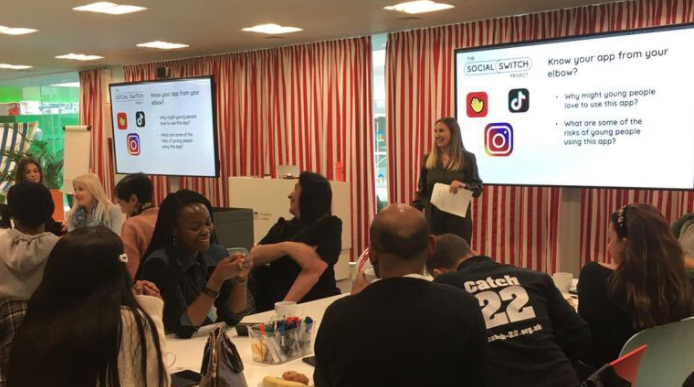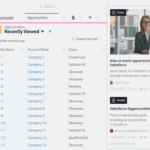The Social Switch Project trains London’s youth workers, teachers, and social workers to support young people to thrive online.
More than 1000 professionals across London have completed training in social media and online harms through The Social Switch Project.
It comes following a 17% rise in online sex crimes against children reported in the months after the first Covid-19 lockdown.
The pilot programme, co-delivered by social business Catch22 and charity Redthread, enables frontline professionals who engage with at-risk youth to have constructive conversations about social media use – from looking at the motivations behind what they post to discussing how they can use their digital skills to launch digital careers.
The Social Switch Project was delivered virtually throughout the Covid-19 pandemic, and thanks to funding by the Mayor of London’s Violence Reduction Unit and Google.org, is free to all participants.
Lib Peck, Director of London’s Violence Reduction Unit, says:
“I’m delighted that more than a thousand professionals who work young Londoners – teachers, police officers, social workers – have now taken part in training to help them understand the risks facing young people online.
“We know that during the pandemic young people have been spending increasing amounts of time online and on social media. It’s more important than ever that those working to support young people have the knowledge and skills to understand the online world they are navigating and are able to have helpful conversations with them about the new challenges they face.”
Rosamond McNulty, Service Manager for The Social Switch Project says the small, interactive workshops mean professionals from various disciplines can compare notes and openly discuss challenges:
“We are thrilled to reach this milestone and know we are improving how professionals engage with young people. Often, participants will not have heard of half of the apps we discuss. And while they are aware of some of the risks, they have no understanding of the positive experiences children and young people are having online – without this, they are isolating themselves as professionals.
“As we welcome the Media Literacy Strategy and while the Draft Online Safety Bill awaits pre-legislative scrutiny, we hope to see more of a focus on prevention, and training for parents and professionals. We want them to feel equipped to deal with the range of issues professionals are confronted with every day.”
Keyur Patel, Metropolitan Police Officer focussed on Youth Strategy, Engagement and Schools completed the training and says:
“Every day we see the impact of harms which have started online – from threatening behaviour to the grooming of young people – and it is essential that we understand the way platforms operate and the motivations behind young people’s use of them.
“Training like The Social Switch Project enables those supporting and responding to young people to understand the importance the online world has to them – we must not be dismissive to these new challenges and the experiences they are having, because we can use them as a key point for intervention and harm prevention.”
Hear directly from other participants here:
Of all participants who completed the latest feedback survey:
- 94% had an increased understanding of how to support young people to make valuable contributions online,
- 92% had an increased understanding of social media and how young people engage with it, and
- 90% had an increased understanding of best practices for working professionally with young people online.
London professionals working with young people can sign up for the next training sessions at thesocialswitchproject.org.uk.
In light of the success of the London-based training, the Greater Manchester Violence Reduction Unit is currently establishing a pilot for Manchester’s teachers too.


